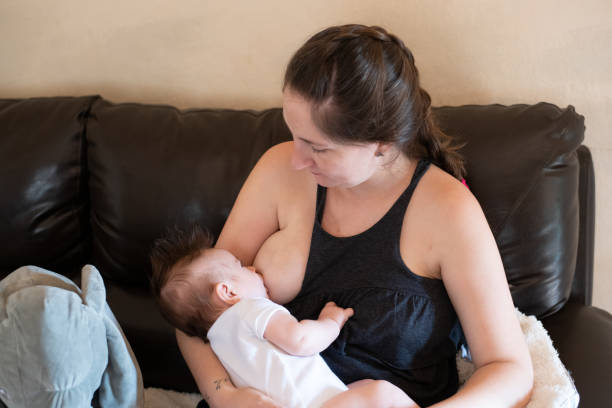In July, the Canadian government announced a once-off grocery rebate for low-income Canadians. The refund was a welcome relief for those who were struggling to cope with the inflationary pressures. Still, the amount of money provided is not enough to combat the poverty and food insecurity that the poorest Canadians face.
Insecurity in food can affect mothers and babies living on welfare, especially during the most vulnerable period of their lives. To better serve mothers, governments need to change their policies.
Food insecurity for infants
Food insecurity, also known as “inadequate access to food because of financial constraints,” can have many negative health effects on mothers. These range from adverse outcomes at birth to issues with mental health. Infant food insecurity may have long-term effects, such as cognitive development.
Experts explain how insecurity about food can affect a mother’s decision or ability to breastfeed. Mothers who are food insecure may stop breastfeeding earlier because they believe they do not have enough breast milk. They may also struggle to pay for infant formula.
Rates fall dramatically in the first two months. Undernourished mothers may believe that they are not producing enough milk and stop breastfeeding. They think their baby will suffer as a result.
Breastfeeding may seem like the most cost-effective way to feed your infant if you are on a low income. Other research has shown that formula and breastfeeding are unaffordable for mothers who receive welfare.
Welfare system problems
In most provinces and territories, approximately 4 to 6 percent of the population receives welfare benefits. In Alberta and the Yukon, this number is slightly higher. Nunavut has a much lower percentage at just under 28%.
Despite the fact that some provinces and regions provide more financial support to mothers and pregnant women than others, overall incomes are still low and insufficient to ensure food security.
As an example, Nova Scotia welfare beneficiaries receive a total of 51 dollars per month as maternal nutrition allowance throughout pregnancy and for up to 12 months following birth. This is not always enough to help low-income mothers feed their babies.
The allowances given to pregnant women and mothers with infants who receive welfare in Canada are also low. These low rates lead to food insecurity among these vulnerable families, and provincial, territorial, and Federal government policies must address them.
Donating money alone is not enough.
Many people assume that food banks and charities will help low-income families. A recent study revealed that many community organizations responded to the increase in demand for food during the COVID-19 epidemic.
Community organizations played a critical role in filling the gaps left by the pandemic, but they cannot solve the root problem of food insecurity – inadequate incomes. The problem persists, and in recent years, the number of people who rely on food banks has increased exponentially.
Additionally, many food banks are struggling to provide enough food. The demand for food now far outstrips the donations most food banks receive. A sustainable solution to food insecurity is needed, particularly for pregnant women and mothers of infants.
Child welfare laws
The child welfare laws must also be amended to prevent them from penalizing poorer parents. The Children and Family Services Act in Nova Scotia stipulates that the failure of parents to provide adequate nutrition is grounds for child arrest.
The 2022 Report Card for Child and Family Poverty recommended that this requirement be removed. Experts highlighted that such conditions are punitive. This type of regulation punishes mothers for their poverty or food insecurity rather than increasing financial support.
Inflation and its impact
Reforms are needed around the welfare rates to create a more livable income for mothers and babies in particular.
The 2022 report on poverty in Nova Scotia shows that welfare rates in the province are not indexed to inflation. Benefits have stagnated in spite of modest increases over the last few years. Only three provinces or territories link welfare rates to inflation. New Brunswick. This has led to lower income inequality in Quebec.
Recently, the province launched a Basic Income Program. Although it has some restrictions on eligibility, this program increases income that recipients would receive otherwise from welfare benefits.
The food insecurity of mothers who receive welfare payments will continue to grow as inflation affects the cost of food. The welfare rates must be based on the income needed to feed new mothers, pregnant women, and those who are breastfeeding and to provide the necessary support to their children.


